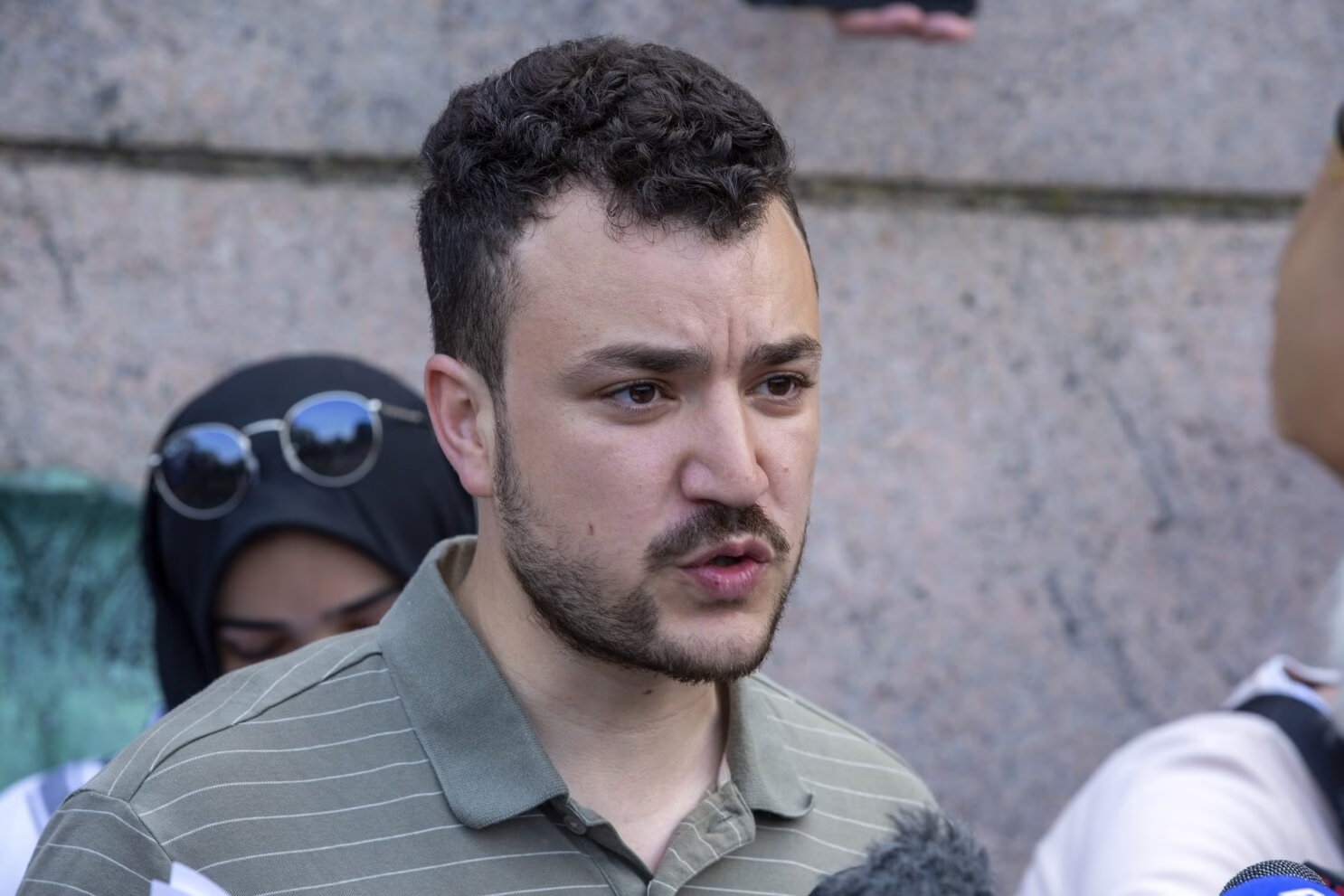Mahmoud Khalil, a Palestinian graduate student at Columbia University, described himself as a political prisoner on Tuesday in his first public statement since being detained by the Trump administration. Khalil, a U.S. permanent resident, faces deportation due to his role in pro-Palestinian protests, a move that has sparked widespread criticism.
Human rights groups have condemned Khalil’s detention as an attack on free speech and due process. More than 100 Democratic lawmakers have challenged its legality in a letter to President Donald Trump’s administration.
According to Justice Department lawyers, Khalil, 30, is being deported because Secretary of State Marco Rubio determined his presence in the U.S. could have “adverse foreign policy consequences.” His case could become a landmark test of how courts balance First Amendment protections for non-citizens against executive authority over foreign policy.
Khalil’s Statement and Growing Protests
In a letter made public on Tuesday, Khalil stated:
“My name is Mahmoud Khalil, and I am a political prisoner. My arrest was a direct consequence of exercising my right to free speech as I advocated for a free Palestine and an end to the genocide in Gaza, which resumed in full force Monday night.”
His lawyers have demanded his immediate release, noting that he became a lawful U.S. permanent resident in 2023 and that his wife is eight months pregnant. His arrest on March 8 triggered protests across the U.S., including a large demonstration in New York’s Times Square on Tuesday.
Trump’s Crackdown on Pro-Palestinian Activists
Former President Trump has pledged to deport pro-Palestinian activists involved in campus protests against Israel’s war in Gaza following the October 2023 Hamas attack. Trump has claimed, without evidence, that Khalil supports Hamas, while Khalil’s legal team asserts he has no ties to the group.
Pro-Palestinian advocates, including Jewish organizations, argue that criticism of Israel’s actions in Gaza is wrongly equated with antisemitism and support for Hamas. Khalil stated in his letter that his arrest reflects anti-Palestinian discrimination.
The U.S. government has not provided further details on how Khalil poses a threat to foreign policy, fueling further debate over the limits of free speech and political dissent in the country.



